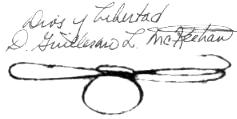After failure of Spain to colonize Texas, the newly independent Mexican Republic established in 1823 the empresario contract system to colonize the state with foreign immigrants who would become citizens of Mexico and members of the state Catholic church. Despite its late start in 1826, security problems because of its exposed western and southern borders when it was the westernmost frontier of colonization, boundary disputes on the south and lack of a strong political leader relative to the Austin and other colonies, the DeWitt Colony of Texas emerged second to the Austin Colonies in achieving goals of colonization policy and played an equal or greater role in the early stages of resistance to the centralist Mexican dictatorship that led to the independence of Texas. Supported by visionary native Hispanic political leaders, the colony was populated by independent-minded small farmers and ranchers from the "upper southern" frontiers of the young United States of America. They were attracted by the liberal policies of the newly-independent Mexican Republic which offered them land, freedom from excessive taxation, local autonomy and protection under the laws of the State of Coahuila y Tejas and the Federal Constitution of 1824. They practiced the Catholic state religion of Mexico in an ecumenical Christian and practical sense. The majority of DeWitt Colonists were loyal Mexican Federalists, not slave owners and disfavored the institution, attempted to co-exist with the generally warlike nomadic aboriginal populations of the area, respected and learned from the native Mexican-born Tejanos that preceded them and disagreed with adventurous warlike acts against their adopted government as they built homesteads, ranches, families and a society in the wilderness. When a racist centralist dictatorship took control of their adopted country, threw out their Constitution and threatened their lives, property and pursuit of happiness as Mexican citizens, DeWitt colonists resisted actively and became participants in the struggle to re-establish the Federalist Constitution of 1824 and to establish an independent state of Texas within the Republic of Mexico. When all hope for the latter was destroyed and with it the hope for the United States of Mexico to become a second democratic and multi-racial Republic in America, DeWitt Colonists along with native-born Tejanos fought and won an independent Republic of Texas which later joined the United States of America. It was in Gonzales where the first resistance to the centralist dictatorship based on principle occurred, it was Gonzales where Stephen F. Austin organized a broader response to the occupation of the ancient capital of Texas, San Antonio de Béxar, by the centralist dictatorship, DeWitt colonists were the only Texans to timely respond to besieged colleagues in the Alamo and it was Gonzales where the provisional government of Texas first assembled an army under Sam Houston whose victory at San Jacinto resulted in independence and the Republic of Texas which eventually joined the United States of America as the Lone Star State. With no single leadership personality that stands out similar to Stephen F. Austin, De Leon, McMullen/McGloin and Powers of other viable colonies, the DeWitt Colony was truly one of the cooperative efforts of the people in general who comprised it.
Member of |

